 Data about occupational health and safety (OHS) and work-related psychosocial injuries has often been described as being hard to find. In some ways it is not necessarily hard to find but difficult to access. An untapped source of data is the records of illness and leave taken that is usually held by the Human Resources (HR) departments, often named “People and Culture”or some variant. This type of data could be invaluable in determining a workplace psychological profile, if the HR departments would trust OHS professionals more, or release this data in a format that would allow OHS professionals to assess risks while maintaining employees’ privacy.
Data about occupational health and safety (OHS) and work-related psychosocial injuries has often been described as being hard to find. In some ways it is not necessarily hard to find but difficult to access. An untapped source of data is the records of illness and leave taken that is usually held by the Human Resources (HR) departments, often named “People and Culture”or some variant. This type of data could be invaluable in determining a workplace psychological profile, if the HR departments would trust OHS professionals more, or release this data in a format that would allow OHS professionals to assess risks while maintaining employees’ privacy.
Beware, Generalisations Ahead
In Australia, employees are usually entitled to ten days’ sick leave, five of which require a medical certificate. This means that one of the forty-eight expected working weeks may be taken off by workers with no reason provided to the employer other than a call or a text saying “I’m not coming into work today because I am not feeling well.” Australian slang describes this as “chucking a sickie”.

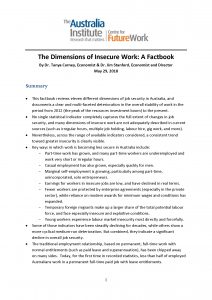 The Australia Institute
The Australia Institute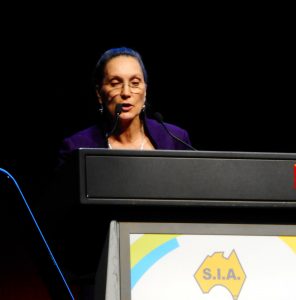
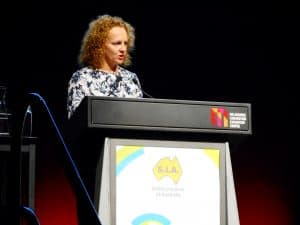 Throwing chocolates to delegates, audience participation, push-ups, book giveaways, hand-eye coordination exercises – not the usual elements of the opening keynote speaker of a safety conference. Day 2 of the Safety Institute of Australia’s
Throwing chocolates to delegates, audience participation, push-ups, book giveaways, hand-eye coordination exercises – not the usual elements of the opening keynote speaker of a safety conference. Day 2 of the Safety Institute of Australia’s 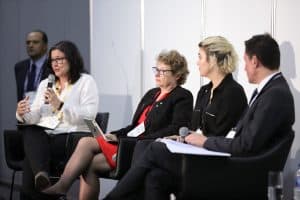
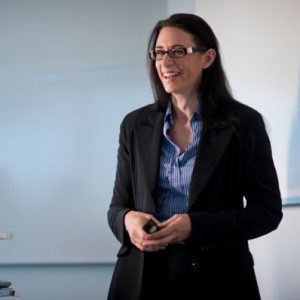 Dr Rebecca Michalak
Dr Rebecca Michalak One of the Select Committees of the Australian Senate is conducting an inquiry into the “
One of the Select Committees of the Australian Senate is conducting an inquiry into the “